
To be listed on the CAMPOSOL TODAY MAP please call +34 968 018 268.
article_detail
Spanish News Today Editors Roundup Weekly Bulletin Dec 6
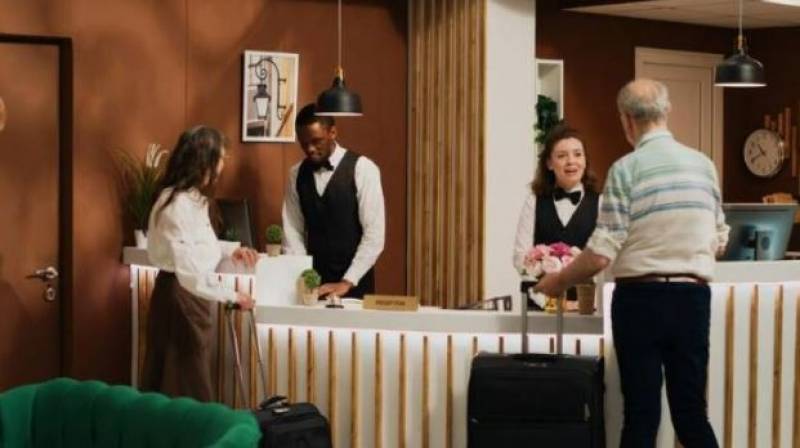
TOP STORIES: "Frustration and fears as Spain hotels enforce strict new rules for tourists" & "Supermarket opening times this long weekend and at Christmas"
Happy day off today, everyone in Spain, and – depending where you are in the country – a happy day off on Monday too! We’ve got a bit of a roundup for you about the ‘puente de diciembre’ as this early December mini-break is known.
But first, possibly the biggest new thing to hit Spain this week was the entry into force of a series of stringent identity requirements when guests sign in to hotels. Needless to say, not everyone is overjoyed.
Hotel, motel, holiday sign-in
Spain’s tourism sector has found itself at the centre of an international storm following the introduction of a controversial new guest registry system. The Royal Decree 933/2021, which came into force on Monday December 2, has sparked widespread outrage among hoteliers, travel agents and car rental companies, who argue that the regulation is burdensome, invasive and potentially at odds with European data protection laws.
These changes have made the news across the globe and holidaymakers from the UK and further afield are feeling panicked about potential upheavals next time they try to book into a hotel or hire a car. However, the problem is something of a storm in a teacup and we’ll give you all the details here.
Under the new rules, hotels, accommodation providers and certain other tourism businesses must collect more than a dozen pieces of information from each guest, significantly more than the nine details previously required.
This includes personal data, passport numbers and even the relationship between travelling companions. While early reports erroneously suggested bank details would also be required, the government has clarified this is not the case. Nevertheless, the expanded data collection has raised significant concerns.

The Ministry of the Interior claims that the new registry will enhance transparency and efficiency in the tourism industry. Businesses are required to upload the collected data to a centralised system, which replaces earlier platforms used to share guest details with the authorities.
However, the rollout has been far from smooth. Within hours of the system going live, the SES.Hospedajes platform crashed, leaving hotel staff frustrated and struggling to comply with the new requirements. While the government quickly restored functionality, reports of ongoing technical glitches and delays continued to pour in.
In fairness to the Spanish government, countless reports from tourist and hotel guests suggest that most people weren’t even aware that any changes had taken place – they handed over their passport to the receptionist as usual and were checked in promptly.
But for many in the tourism sector, the challenges go beyond technological hiccups. Industry leaders argue that the new rules significantly increase the workload for staff, particularly during the busy check-in process.
And despite mostly positive reviews from holidaymakers, hoteliers have reported long delays, especially when processing large groups or guests with foreign documentation. These bottlenecks, critics say, could erode the quality of the guest experience and harm Spain’s reputation as a leading tourist destination.
Privacy concerns are another major sticking point. Industry professionals warn that storing such a large volume of sensitive guest data creates a tempting target for cybercriminals. Bartolomé Vera, head of Murcia’s Federation of Hospitality and Tourism, expressed alarm at the heightened risk of hacking, describing the regulations as a violation of both guest privacy and the principles of Spain’s Data Protection Law.
“They are forcing us to handle information that we should not be required to collect,” echoed David Blasco, president of the Regional Association of Travel Agencies.
The backlash has been fierce. National and regional tourism organisations, including the Spanish Confederation of Hotels and Tourist Accommodation (Cehat) and the Spanish Confederation of Travel Agencies (CEAV), have condemned the decree.
The CEAV has written to government ministers, calling the rule “disproportionate” and urging a review. Legal action to challenge the regulation is already being explored by multiple organisations.
Despite the Ministry of the Interior’s insistence that the new system doesn’t entail significant costs, hoteliers and travel agents remain sceptical.
They argue that even with the previous system, gathering and submitting guest data was a time-consuming process. Adding more information fields has only compounded the workload, with some industry representatives predicting that staff will become overwhelmed as the busy season approaches.
The controversy surrounding the guest registry has placed Spain’s tourism sector in a precarious position. While the government maintains that the changes will ultimately benefit the industry, widespread opposition from those on the front lines suggests that this is a battle far from over.
A puente over troubled waters

Spain’s Constitution Day and Immaculate Conception long weekend – often just lumped together as the ‘December puente’ – is a national excuse for a midwinter breather between All Saints’ Day and Christmas. But behind the festive façade lies a fascinating blend of history, religion and a splash of modern consumer chaos. Let’s peel back the layers of this curious concoction.
December 6 marks Constitution Day, of course, a celebration of Spain’s post-Franco democratic rebirth in 1978. Spaniards take the day to toast their democracy, though whether that’s with cava or political sniping depends on the crowd.
The constitution itself, while heralded as a symbol of unity and progress, is increasingly criticised as a dusty relic of the 20th century. Some say it’s sexist, classist or just plain tired, prompting occasional calls for a rewrite. But doesn’t freedom of expression really just mean the ability to argue over what it means to be a nation?
Then comes December 8, the Feast of the Immaculate Conception, when the Catholic calendar takes centre stage. This day commemorates the Virgin Mary’s divinely engineered maternity, a theological concept that can leave non-Catholics scratching their heads but gives the faithful an excellent reason to call in holy.
Pair these two public holidays, toss in a strategically placed Friday or Monday, and voilà! You’ve got yourself a puente.
This year, the puente logistics are, as ever, a mixed bag. Constitution Day falls on this Friday, giving everyone a solid three-day weekend. The Feast of the Immaculate Conception lands awkwardly on a Sunday, so the Monday holiday make-up applies only in certain regions which have chosen to transfer it over. In places like Andalucía and Murcia, lucky locals can enjoy a four-day weekend. For everyone else, tough luck: three days will have to do.
So as we rest, reflect or simply relish the time off, it’s a time when the nation’s iconic symbols inevitably pop into focus. Take the Spanish flag, for instance. Its bold red and yellow stripes seem omnipresent, from government buildings to balconies of die-hard patriots. Yet its origins are rooted less in stirring nationalism and more in maritime practicality.
In the 18th century, Charles III demanded a flag that would be easily recognisable at sea. Thus, the vibrant hues were born. Over centuries, and through a civil war or two, the flag endured, morphing from monarchical symbol to national icon. Even Franco had a go at tweaking it (eagle, anyone?), but today it remains a constitutional fixture, unchanged since 1978, like so much else in Spain’s institutional furniture.
Meanwhile, that other symbol of nationhood, Spain’s national anthem, the “Marcha Real,” carries the dubious honour of having no lyrics. Not a single word. Nada. It’s one of only four countries in the entire world that has no lyrics in its national anthem.
Historically, attempts to put words to the tune have either fizzled or exploded into controversy. Lyrics are a powder keg in a nation where regional autonomy is a cherished (read: fiercely contested) right. Between Franco’s dictatorship and the ongoing tug-of-war over Catalan, Basque and other independence movements, silence has proven far less inflammatory than any conceivable verse.
It’s no wonder the anthem remains firmly in instrumental mode, making Spain one of only four countries globally with a wordless national tune. Who knew avoiding lyrics could be a diplomatic masterstroke?
Of course, what’s foremost on many people’s minds any time there’s a festive is the practical challenge of navigating supermarket opening hours. Constitution Day sends shoppers scrambling to check which stores will be open. The stalwart Mercadona? Firmly closed, following its no-holidays-ever-on-a-holiday policy. Aldi and Lidl? Open, probably, but with caveats depending on the store. Carrefour? Possibly open, possibly not; flip a coin or consult their labyrinthine website.
Shopping centres like Murcia’s Nueva Condomina, Cartagena’s Espacio Mediterráneo and Lorca’s Parque Almenara are a safer bet, opening their doors as usual for Christmas shopping, though they are closed on Christmas Day and New Year’s Day.
Happy puente!
Murcia
The air quality in Murcia has been just awful this week, partly due to that typical culprit, the calima, a deluge of desert dust from the Sahara that has descended on the Region. In particular, it has smothered Murcia city in particulate matter and forced the authorities to hit the big red “Level 3” pollution button.
So bad has the problem been in the last few days that the city’s public transport has gone free on certain days, construction sites have fallen eerily silent, and physically intensive outdoor activities have been deemed a no-go for the elderly and school kids.
While it’s commendable that Murcia claims to have some of the best pollution protocols in Spain, one can’t help but wonder if the city’s officials are quietly rethinking their recent decision to pave every conceivable inch of urban space.
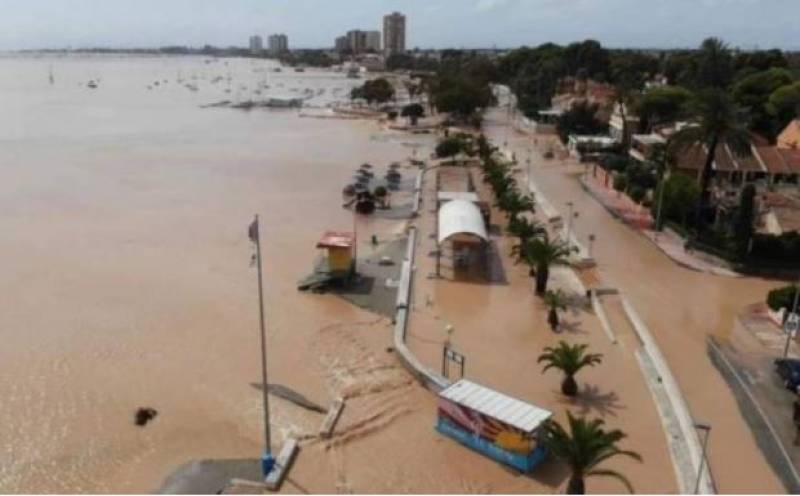
The Region’s climate as a whole is a hotbed (literally!) for extreme weather events, with floods, fires and droughts competing for centre stage. The latest climate study reveals that Murcia has been battered by 17 extreme rainfall episodes in 25 years, particularly around the already beleaguered Mar Menor.
Add to this the creeping menace of desertification and the growing tally of economic losses, and one could argue Murcia has inadvertently turned itself into a real-life case study for climate change’s greatest hits. The solution? More hydrological planning and fewer buildings in flood-prone zones, although convincing developers to prioritise drainage over profit may take more than a politely worded report.
At least one environmental problem looks like it could soon be cleared up. The residents of the Condado de Alhama urbanisation who are plagued by a foul-smelling lake can finally breathe easier. After months of stagnant water, mosquito invasions and general eau de swamp, a solution is reportedly in the works.
Right now, desalinated water is being added to loosen the lake’s sludge in preparation for a long-overdue cleanup. Local officials promise this is just the start of efforts to rehabilitate the lake, though whether it will ever shed its reputation as Murcia’s least appealing water feature remains to be seen.
On the brighter (and tastier) side of things, Murcia’s pizza scene has scored big in Spain’s National Pizza Championship. While you’d be forgiven for not knowing such a competition existed, rest assured that Murcia’s dough-slingers are among the best in the business.
The Region’s top three pizzas come with innovative toppings like pistachio pesto and smoked aubergine, although if you’re a purist, the thought of shrimp on a pizza might have you clutching your marinara sauce in despair.

Speaking of food and drink, Jumilla’s vintners are raising their glasses after being shortlisted for the International Wine Merchant Awards. The wine-producing municipality’s campaign, which blends art, culture and the occasional bottle of Monastrell, has captured the attention of industry insiders by comparing winemaking to high art.
And finally, back to Murcia city where they are gearing up for a 1,200-year anniversary bash that promises to be equal parts historical deep dive and marketing extravaganza. 2025 will mark 1,200 years since the city was founded in 825 by Abderramán II, a figure Murcia plans to spotlight as it celebrates a dozen centuries of existence.
With a year-long programme in which each month will be dedicated to a different century of the city’s past, the celebrations will feature everything from mediaeval irrigation systems to Arab walls in an attempt to blend heritage with a forward-looking vision for luring in tourists.
As it starts to get colder and feel more Christmassy, the Crimbo markets are starting, the lights are being switched on and the carol singing commences. There’s almost too many Christmas activities to keep up with this year… unless you enlist the help of our handy list of everything happening in and around Murcia this Christmas and New Year period! Give it a click, see everything that’s going on.
See our EVENTS DIARY for all events and activities coming up in the Region of Murcia:
Spain
As 2024 wraps up, the Spanish housing market is a hot topic, with everyone asking the same question: what’s next? With property prices already sky-high, it’s hard to imagine they could climb any further - but according to experts, that’s exactly what’s in store for 2025.

This year has been a wild ride for housing in Spain. Home prices have shot up by 9.5% compared to last year, while the number of long-term rental properties has dropped by 5%. At the same time, short-term tourist rentals are popping up everywhere, making the supply-demand imbalance even worse.
Sadly for potential investors or home buyers, the numbers don’t lie, and Spain’s Ministry of Housing reports that the average cost per square meter of residential property is now just 180 euros shy of the 2008 peak - the height of the last real estate boom.
Economist Pau Antó isn’t mincing words about the situation, calling the market “overinflated” and pointing to the broader issue of skyrocketing living costs in Spain.
“The Spanish market is inflated, just like the shopping basket and many other essentials,” Antó observed. “I think there’s a very big problem with the cost of living in general.”
The housing squeeze is exacerbated by a shortage of rental properties and government regulations that, while well-intentioned, may be contributing to the issue.
With supply a constant problem, real estate portal pisos.com predicts an upward trajectory for both purchase and rental prices in 2025.
Buying a property is expected to cost 12.1% more than this year. Rents, too, are likely to climb.
The sharpest increases will likely occur in high-demand areas like major cities and tourist hotspots, where the mismatch between supply and demand is most pronounced.
Ferran Font, director of studies at pisos.com, captures the crux of the issue:
“This tension cannot be translated in any other way than in an increase in prices.”
Are you ready for just a little more bad news? Sorry to have to be the one to tell you this, but your electricity bill is going to leave you out of pocket from next year too. This is all thanks to the Spanish government’s decision to hike the electricity VAT rate back up to 21% after three and a half years.
The old bonuses intentionally kept household bills relatively low to combat the cost of living crisis but in the new year, things are about to get a whole lot more expensive.
So, if you’ve enjoyed some relief over the past few years, you might want to prepare for higher costs ahead.
This isn’t exactly a sudden move. Back in June 2021, the VAT rate for electricity was cut to 10% and a year later, it was reduced further to just 5% to help households cope with soaring energy prices.
But as the economic situation improved, the government began rolling back those discounts, bumping VAT back up to 10% in 2022. Now, with the final increase set for January, bills are about to rise again.
But what will it mean for your budget? Well, the hike will affect everyone, households and businesses alike.
For the average family home, this means an extra 5.42 euros per month, or about 65 euros a year added to their electricity costs. That might sound manageable, but for small and medium-sized companies, which make up nearly all of Spain’s business sector, the impact is far steeper. Some could see their monthly bills jump by 114 euros, adding up to nearly 1,400 euros a year.
Not surprisingly, consumers and advocacy groups aren’t happy. The Organisation of Consumers and Users (OCU) is calling for a rethink, pointing out that other European countries like Portugal and Belgium already apply reduced VAT rates on electricity.
Critics argue it’s unfair for such a basic necessity to carry such a hefty tax burden.
In any case, the government seems determined to push ahead with these changes, meaning that 2025 is shaping up to be another tough year for consumers in Spain.
 Spain has just unveiled an ambitious plan to tackle one of modern parenting’s biggest challenges: managing kids’ use of smartphones and the internet.
Spain has just unveiled an ambitious plan to tackle one of modern parenting’s biggest challenges: managing kids’ use of smartphones and the internet.A groundbreaking report, pulled together by a team of 50 independent experts, is packed with ideas on how to shield children from the digital world's risks and foster healthier online habits.
At the core of the recommendations is a bold suggestion: hold off on introducing kids to digital devices altogether until they’re six years old. And even then, keep their use to a bare minimum. For those between 6 and 12, the advice is clear - screen time should be rare, supervised and limited to social or family connections.
When it comes to mobile phones, the experts propose delaying internet-enabled smartphones until kids turn 16. For tweens and younger teens aged 12 to 16, they suggest going old-school with so-called “dumb phones” - basic models that are only good for calling and texting.
But the report doesn’t heap all of the responsibility on to parents, schools or whoever else the Spanish government thinks should manage and enforce these proposed regulations.
It takes aim at the tech industry too, calling for mandatory parental controls on all devices and packaging warnings about potential health risks tied to overuse.
Government spokesperson Pilar Alegría called the report a “starting point” for a national strategy to create safer digital environments for children.
While the government maps out a national strategy, schools in some regions, including Alicante and Murcia, have already banned phones during school hours. These steps reflect growing awareness of how too much screen time can harm kids’ mental health and academic performance.
It’s official - November 2024 has smashed the record books as Spain’s hottest November ever. Temperatures soared an eye-watering 3°C above average last month, with the mercury hitting a balmy 12.4°C on average across the country.
If it feels like Spain’s been on a non-stop heatwave streak lately, you’re not wrong. This year has been one record-breaking month after another.
According to Spain’s State Meteorological Agency (Aemet), November’s blistering heat left all previous records in the dust, including the long-standing champ, November 1983.
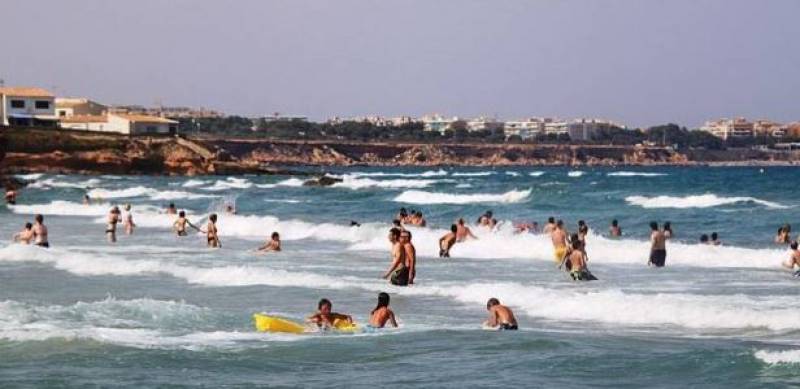
And as if the heat wasn’t enough, rainfall decided to join the rebellion, with the country only getting half of the usual November downpours. This news might sound ironic after the devastating DANA storms earlier in the season, but it paints a clear picture of Spain’s growing weather extremes.
Rubén del Campo, spokesperson for Aemet, summed it up briefly and to the point: “November 2024 has been an extremely hot and very dry month.”
He noted that the warmth carried right into December, with places like Gran Canaria’s La Aldea de San Nicolás sizzling at 32°C and Málaga’s Coín hitting 29°C as late as November 30. Even cooler northern regions like Bilbao and San Sebastián saw unusually mild highs of 24°C and 23°C, respectively, over the weekend.
So, what about December? Surely, winter’s got to show up eventually, right? Well, temperatures might dip a little this week, but don’t get your hopes up for a frosty turnaround just yet.
Aemet predicts that most of the country will enjoy (or endure, depending on your perspective) weather that’s still milder than the seasonal norm, with rain scarce outside the far north and parts of the Balearic Islands.
But if you’ve been holding out for that classic winter chill, we might get a small, if somewhat brief, taste at the tail-end of this bank holiday weekend or the beginning of next.
Alicante
Alicante is taking a bold step to tackle the growing divide between an overwhelming surge of holiday rentals and a shrinking supply of long-term housing. After much deliberation, the city council has announced a two-year freeze on issuing new licences for tourist apartments and holiday homes - a move aimed at rebalancing the scales.
This means that no new tourist rental permits will be processed or granted within Alicante city limits for the next two years. But what’s the plan behind the block? According to Mayor Luis Barcala, this moratorium is about more than just hitting pause; it’s a chance for Alicante to re-evaluate its approach to short-term lets and their effects on the city’s “urban and social fabric.”
The decision follows an in-depth analysis conducted by the University of Alicante and the consultancy EOSA. Their findings highlighted the urgent need to impose density limits on holiday homes, taking into account factors like public service capacity, the preservation of residential areas and the delicate balance between tourism and local needs.
The long-term goal is to ensure Alicante remains a vibrant and liveable city for its residents while still welcoming tourists.
For landlords eyeing the short-term rental market, the moratorium might seem like a roadblock. But for Alicante’s council, it’s a key piece of a bigger puzzle: improving housing access for locals.
In the meantime, Alicante is cracking down on illegal rentals. The council has pledged to ramp up inspections and issue suspension notices to properties operating without a licence or outside regulations.
Through this, they are sending a clear message that tourism must work in harmony with local life.
 A 14-year-old Swedish-Moroccan boy has been arrested in Alicante for leading a network of underage assassins. Living with his parents in Torrevieja, the boy allegedly recruited other teenagers, provided them with weapons and orchestrated murders for 20,000 to 50,000 euros per killing.
A 14-year-old Swedish-Moroccan boy has been arrested in Alicante for leading a network of underage assassins. Living with his parents in Torrevieja, the boy allegedly recruited other teenagers, provided them with weapons and orchestrated murders for 20,000 to 50,000 euros per killing.This disturbing operation targeted minors for their “cost-effectiveness” and reduced sentences if caught. Authorities say such violent youth networks are rising in Sweden, with Spanish police uncovering videos of teenagers as young as 13 committing cold-blooded killings.
The investigation began when Swedish police shared intelligence with Spain, leading to a breakthrough in Benalmádena, Málaga. A 17-year-old Swedish boy was arrested there while plotting to kill a rival motorcycle gang member.
This led to the 14-year-old mastermind, who operated from his parents’ home, which served as the network's command centre.
Authorities say the boy was cautious and hard to track, running the operation via social media and detailed planning. The child’s parents, who were reportedly fully aware of his crimes, have been jailed while he is currently being held in a youth detention centre.
A shocking incident in Benidorm left patrons and staff of a local bar reeling this week after a 27-year-old employee from Nepal was arrested for secretly recording women in the bathroom.

The man’s disgusting actions came to light when bar customers discovered a mobile phone hidden behind a painting frame in the women’s toilet. Understandably alarmed, they immediately alerted the National Police, fearing they were being filmed.
The officers took away the mobile phone to examine it and their subsequent investigation revealed that the device belonged to one of the bar's employees, who had discreetly installed it in the bathroom the day before. The man reportedly used the women’s restroom to change into his work clothes and took the opportunity to set up the hidden camera.
At least five women were recorded without their knowledge, including two staff members of the establishment.
The accused, who had no prior criminal record, now faces charges of "discovering and revealing secrets" under Spanish law.
It’s that time of year again. Alicante is transforming into a magical winter wonderland! Twinkling lights, charming markets and festive cheer fill the city’s streets, making it the perfect destination to soak up the holiday spirit.
From handcrafted gifts to seasonal treats, Alicante’s Christmas markets are brimming with delights for every visitor. Here’s your guide to the city’s top markets this year:
Paseo de Federico Soto Christmas Market & Antique Fair
- When: December 1 – January 8
- Times: 10am to 3pm and 5pm to 11pm (extended to midnight on January 5)
Cascaruja and Porrate Christmas Market
- Where: Federico Soto Promenade
- When: December 20 – 24
- Times: 10am to 11pm
Alicante Comercio Christmas Markets
Various locations across the city host pop-up markets filled with local crafts, food and festive entertainment:
- December 13: Plaza de Benalúa (5pm - 8pm)
- December 14: Plaza de Argel (10.30am – 1.30pm)
- December 19: Plaza-Carolinas market
- December 20: Plaza de Florida-Portazgo
- December 21: Babel market and Calle San Francisco
- December 23: Plaza de América
- December 24: Plaza de Carolinas
- December 27: San Blas
- December 28: Plaza Enrique Vidal
- December 30: Paseo de Campoamor
To plan your festive itinerary, visit the Alicante City Council website for a complete schedule of Christmas markets, workshops, storytelling, concerts, nativity scene routes and parades.
For other events and activities happening in the area, check out the What’s On page of Alicante Today or join the Costa Blanca What’s On and Where to Go Facebook group
Andalucía
We kick things off in Andalucía this week with Steve Nadja, a man who dreamed of sunny skies and Moorish charm in Cádiz only to end up sharing his retirement dream with half the neighbourhood.
Steve’s perfect slice of the Andalusian good life came with some, let’s say, unexpected amenities: two doors in the kitchen of his newly bought piece of paradise in Arcos de la Frontera that led directly to his neighbours’ homes.
Naturally, Steve wasn’t thrilled when someone’s dog popped in to sample the ambiance (and possibly his groceries). His attempts to reclaim his kitchen turned into a legal and social quagmire involving missing coffee machines, irrigation systems and mounting bills.
Perhaps the title deed for that one should have included the fine print: “Comes with friendly neighbours. Very friendly.”
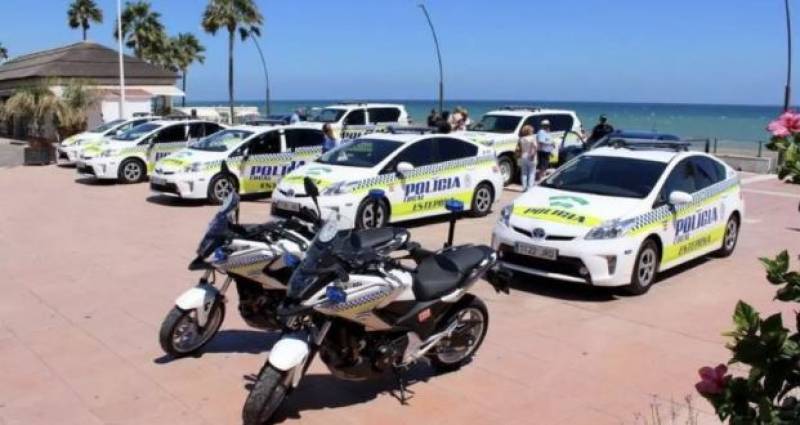 And if Steve’s kitchen saga wasn’t enough drama, Estepona’s nightlife brought us a reminder that things can always escalate. Picture this: a regular Saturday evening in a Costa del Sol pub transforms into a scene from a low-budget crime thriller. Preferably one starring Ray Winston.
And if Steve’s kitchen saga wasn’t enough drama, Estepona’s nightlife brought us a reminder that things can always escalate. Picture this: a regular Saturday evening in a Costa del Sol pub transforms into a scene from a low-budget crime thriller. Preferably one starring Ray Winston.One man exits the bathroom with a head injury, courtesy of an enthusiastic glass-wielding rival, while the suspect saunters off to another bar as if it’s just another night out.
Enter the police, who not only nabbed our bathroom brawler but also dealt with a knife-wielding fugitive earlier in the week. What is it about Estepona and unconventional, violent uses for everyday items?
But fear not. Nearby Málaga city is here to save the season with its unmissable Christmas markets and lights which are famous nationwide.
From the Muelle Uno market at the port, complete with “Chocoland” (you can’t have Christmas without a bit of chocolate overdose), to the Paseo del Parque’s gift-laden stalls, the city practically screams ‘tis the season.
And if you’re not dazzled by the lights and decorations on the Calle Larios, there’s always the El Corte Inglés market, where the combination of festive shopping and food trucks is bound to win you over… or at least distract you from the chaos elsewhere.
Happy holidays!
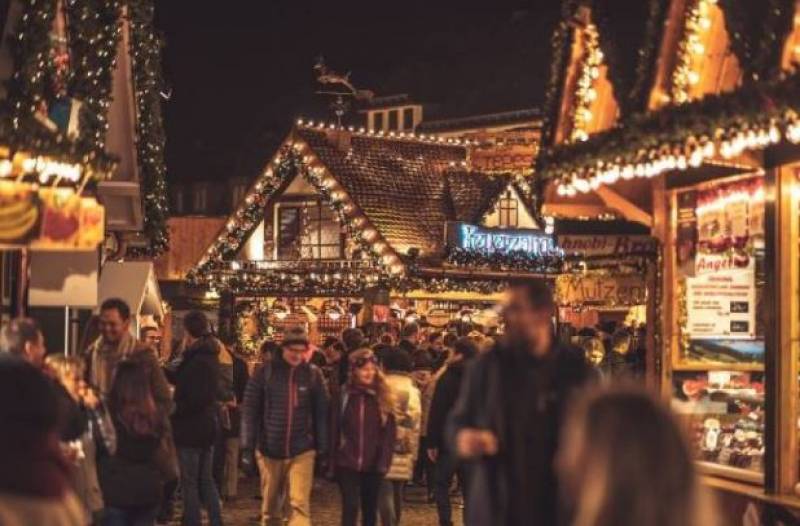
You may have missed…
- Murcia photo of the month December 2024.
Here are the top two images for last month’s competition taken by the Los Alcázares Digital Camera Club (LADCC) on the topic of ‘Timepieces’. - Low Emission Zone stickers now available at more locations in Spain.
It has just become a whole lot easier to get your hands on a Low Emissions Zone sticker for your car as they are now being sold at tobacconist’s and post offices. - Pianos, mirrors, artwork... shipping fragile goods to and from Spain.
Shipping fragile items like paintings, mirrors, glass tables, precious vases, pianos and other valuables requires specialised packing, handling and transportation techniques. Global Relocation - Spain has extensive experience in moving delicate goods to and from Spain, ensuring that your fragile goods and valuables arrive in pristine condition. - Save money on your energy bills in 2025 with Spanish Energy.
As we prepare to welcome 2025, it’s the perfect time to evaluate your household expenses and look for ways to save money. Energy bills are often one of the largest regular costs for homes in Spain, but luckily there is an easy way to switch and save without any hassle. - Is a hot tub good for you?
How healthy is it really to use a hot tub, spa or sauna? Here’s the truth...
That’s all for this week. Thanks for reading and we’ll be back next week.
’Til then!
Contact Murcia Today: Editorial 000 000 000 /
Office 000 000 000

























